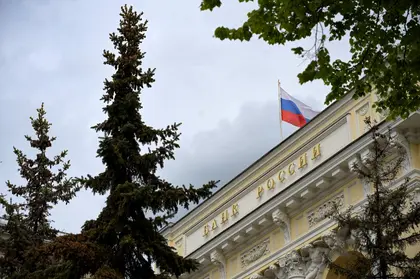Since the beginning of Putin’s full-scale invasion of Ukraine, the EU has blocked over EUR 200 billion ($215 billion) in assets of the Central Bank of the Russian Federation (CBR). The updated numbers resulted from new reporting requirements instituted this month. The EU and other allies would like to use those assets to help rebuild Ukraine.
According to Bloomberg, European Commission (EC) spokesperson Christian Wigand said: “The EU is committed to ensuring that Russia pays for the damages caused in Ukraine.”
JOIN US ON TELEGRAM
Follow our coverage of the war on the @Kyivpost_official.
The EU is “exploring ways of using Russian frozen and immobilized assets for that purpose.” The EC is working with Sweden, which currently holds the EU rotating presidency, “to ensure the necessary coordination at the international level,” Wigand said.
“These reflections are both legally and technically complex” and will be a major topic of discussion at the next EU leadership meetings in June. The European Political Community has its meeting on June 1, while the European Council will meet on June 29-30.
One option that has been discussed is investing the money and using profits and dividends from these investments for rebuilding Ukraine’s infrastructure damaged by Russia’s war.
An additional EUR 24.1 billion frozen private assets has been identified from nearly 1,500 sanctioned Russian individuals, businesses and other entities.

Moldova President Hails EU Referendum Win After Russia Meddling Claims
According to Bloomberg, the EU is separately looking to seize these assets and possibly use those as funds for Ukraine in “the event of criminal offenses by extending the list of crimes, such as money-laundering and corruption, to include the evasion of EU sanctions.”
The new reporting obligations for EU banks began on May 12 as part of the EU’s 10th sanctions package. The mandatory reporting requirement for European bank holdings has increased the accuracy of the figures.
The plan to use frozen Russian assets was reiterated at the recent Group of Seven (G7) summit in Hiroshima. The leaders at the summit agreed that their main goal is to “starve Russia of G7 technology, industrial equipment and services that support its war machine.”
At the summit, according to VOA news: “German Chancellor Olaf Scholz, currently president of the G-7, committed to rebuilding Ukraine’s financial stability and compared the need for reconstruction of Ukraine to the Marshall Plan implemented by the U.S. to help Europe rebuild after World War II.”
Following the G7 meetings, the US, the UK and Japan all announced new sanctions, in addition to the EU.
On May 19, Tokyo said it would apply new sanctions against Russia that will include “an asset freeze of Russian individuals and groups, a ban on the export of goods to Russia’s military-related organizations, and a ban on the export of construction and engineering services to Russia.”
You can also highlight the text and press Ctrl + Enter






